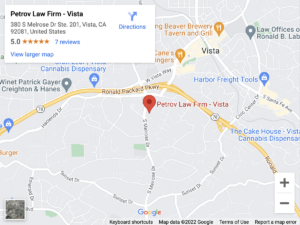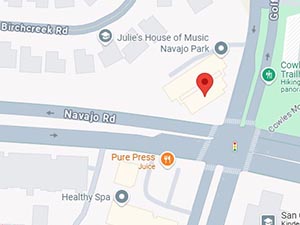
Will your car accident claim eventually settle? If your claim is reasonably strong, the answer is probably yes. The only remaining issues are how much money you will receive and how long it will take you to get it. Some claims take weeks to settle, and some take years. That’s because a lot of things have to happen before you receive a settlement check.
California’s Mandatory Auto Insurance Requirements

California is an “at-fault” state for car insurance. After a crash, you can pursue a claim against the driver who is responsible for your crash. California requires its drivers to carry the following minimum amount of auto insurance:
- $15,000 per victim in bodily injury insurance;
- $30,000 per accident in bodily injury insurance; and
- $5,000 per accident in property damage insurance.
There are other legal ways to insure yourself that most drivers choose not to use (deposit $35,000 in cash with the California DMV, for example).
Your Options After a Car Accident
Under California’s fault-based auto accident system, you have several options after a car accident:
- File a third-party claim against the defendant’s liability insurance carrier;
- File a lawsuit against the defendant;
- Find a second defendant you can assert liability against (the defendant’s employer, under certain circumstances); or
- File a claim against your own insurance (uninsured motorist insurance, for example).
Please note that, unlike many states, California is not a no-fault auto insurance state.
The Settlement Process
Not all settlements proceed in the same way. The following is simply a typical settlement timeline that incorporates the most important elements, from the moment you decide to pursue a claim until the settlement funds reach your bank account.
The Initial Consultation With Your Lawyer
Just about any personal injury lawyer will schedule you an initial consultation free of charge. That is how personal injury lawyers find new clients. This meeting can be very beneficial to both you and your lawyer.
The Preliminary Investigation
Your lawyer will perform a preliminary investigation to gather enough evidence to commence settlement negotiations. This might mean interviewing witnesses, photographing the scene of the accident, obtaining a copy of the police report, and more.
The Demand Letter
At least if an insurance company will be paying your claim, your lawyer will draft and send a formal demand letter. This letter will describe your claim in detail and present a thorough justification for it. It will include supporting documentation, and it will set a deadline (within 30 days, for example) for the insurance company to respond.
Initial Negotiations
The insurance company may reject your claim outright. They are far less likely to do so if you hire a lawyer. It is more likely that they will issue you an initial settlement offer for far less than the true value of your claim. Don’t worry about it-–consider it the opening salvo in the back-and-forth process of negotiation. This stage could last anywhere from a few weeks to a few months.
Filing a Lawsuit (Optional)
At some point, you are likely to run into a brick wall in negotiations. If the other side still isn’t willing to settle on reasonable terms, it might be time to bring out the big guns by filing a lawsuit.
Don’t worry; you still probably won’t end up at trial. According to the U.S. Department of Justice, about 73% of personal injury lawsuits settle even after the plaintiff files a lawsuit, not even counting the majority of claims that settle without a lawsuit ever being filed.
Filing a lawsuit will get you access to the pretrial discovery process (see below).
The Discovery Process (Optional)
Pretrial discovery, available only after you file a lawsuit, offers both sides three powerful legal weapons:
- Interrogatories: Written questions that the other side must answer under oath;
- Depositions: Under-oath, out-of-court testimony; and
- Requests for production: Requests for the production of evidence, including physical evidence and documents.
You can ask the court to sanction the other side if they refuse to cooperate. Discovery can take up to a year in some (but not all) cases.
Mediation (Optional)
If discovery doesn’t produce enough evidence to convince the opposing party to settle, you can bring in a third-party mediator to help you break the logjam. Courts encourage, facilitate, and sometimes even require mediation.
The Settlement Agreement
It might take a few weeks to draft a settlement agreement because the two sides must agree on the exact wording.
Disbursing the Funds
The insurance company (or whoever pays your claim) will send the settlement amount to your lawyer. Your lawyer will deduct their own legal fee, case expenses, and any other appropriate deductions, such as for a medical lien. They will then send the remainder of the funds to you.
This process shouldn’t take longer than six weeks. The larger the insurance company, however, the longer it’s likely to take because of internal bureaucratic hurdles.
Insurance Company Tricks
Some of the following insurance company tricks (and many others) can delay the resolution of your claim unless you detect them and deal with them immediately. An experienced personal injury lawyer won’t fall for any other them. Some of the other ones will actually speed up the resolution of your claim, but for an unacceptably low amount.
‘Lowballing’ You
Offering you a ridiculously low settlement amount in the hopes that you will accept it just to get the money right away.
“Nickel and Diming” You to Death
The insurance company may take the strategy of defending every inch of ground by disputing every medical expense – claiming they are only liable for part of one, and the other one was “unnecessary,” and more. Each objection may seem small, but they add up quickly.
Misleading Your on the Scope of Coverage
The best way to reduce their payout to zero is to convince you that the policy you are claiming against (typically the at-fault driver’s policy) doesn’t cover your injuries at all.
Sometimes, the insurance company claims that the accident you are involved in is not covered in the policy. They may do this by over-interpreting the language of the policy to try to open up a manufactured loophole in coverage.
Monitoring Your Social Network Accounts
If the amount of your claim is large, do not assume the insurance company won’t put an investigator on your case to monitor your social media account for information they can use to suggest that you are exaggerating your injuries. Beware of friend requests from people you don’t know while your claim is pending.
Disputing Your Medical Expenses
Insurance adjusters are not doctors, and they are not qualified to determine what type of medical treatment you do or do not need.
Giving You the Runaround
Insurance companies have endless ways to delay your claim. It can be difficult to contact the person in charge of your case, for example, and they are masters of endless bureaucratic delay. In extreme cases, they might attempt to lull you to sleep with promises that never materialize and cause you to miss the statute of limitations deadline.
Blaming You for the Accident
You can be almost sure that the insurance company is going to try to pull this one at some point. Under California personal injury law, if they can pin even 10 percent of the accident on you, their payout is reduced by 10 percent. If they can pin most of the fault on you, you might even end up with a net loss if the other driver sues you.
Asking You for a Recorded Statement
The insurance company will likely ask you to give a recorded statement about the accident. Don’t give it to them unless your lawyer approves it because their tricks are endless. If you even answer “fine” to the question “How are you?” the insurance company may try to use it against you. And that’s just the beginning.
“You Don’t Need a Lawyer.” Yes, You Probably Do in Truth
When the insurance company tells you this, you can be almost certain that the truth is that they are the ones who don’t need you to hire a lawyer. They are right— the insurance company will probably be better off if you don’t hire a lawyer. But will you?


